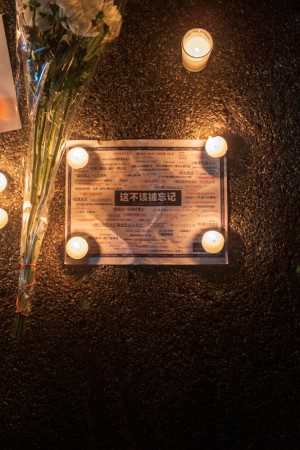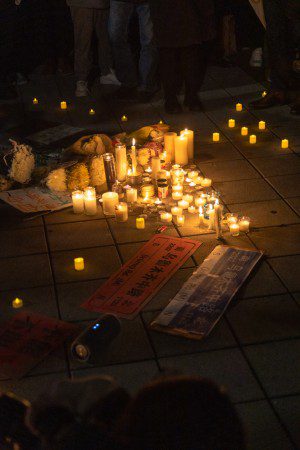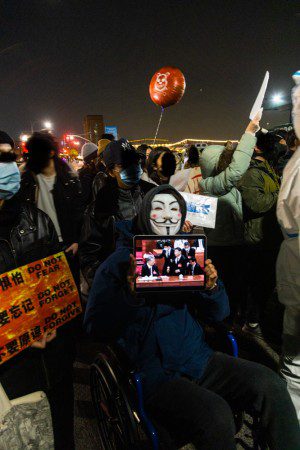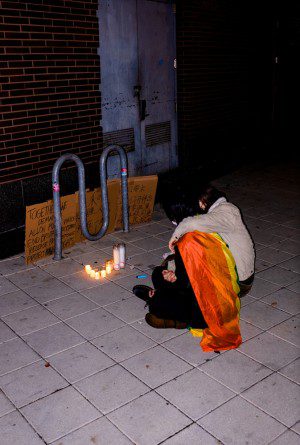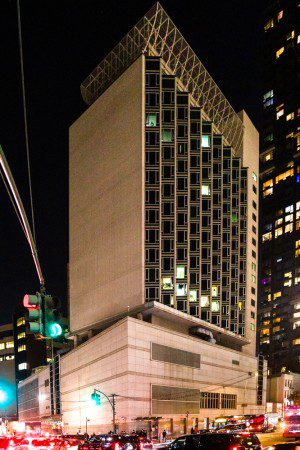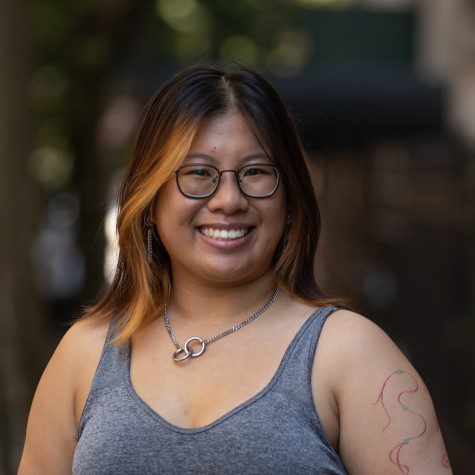Hundreds protest China’s zero-COVID policy, gov’t at consulate
Participants called for the easing of the Chinese government’s strict COVID-19 policies and a change in leadership at the Consulate General of the People’s Republic of China in New York on Tuesday, Nov. 29.
December 1, 2022
Read this article in Simplified Chinese or in Traditional Chinese.
点击此处阅读简体中文版 | 點擊此處閱讀繁體中文版
Hundreds gathered outside of the Consulate General of the People’s Republic of China in New York to protest the country’s strict COVID-19 lockdown policies on Tuesday, Nov. 29. At its peak, the crowd neared almost 1,000 demonstrators. For many NYU international students, China’s current zero-COVID policy has complicated the process of returning home, and has significantly disrupted their families’ lives.
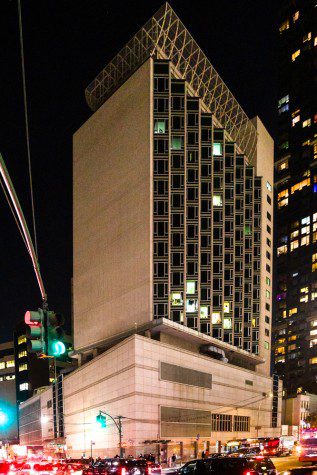
Even if just a few positive cases of COVID-19 are confirmed, lockdowns force small businesses to close, residents to isolate in their homes and schools to shut down. These conditions continue until there are no more positive cases, which can take several months. The protesters at the consulate had four demands of the Chinese government: to allow public vigils, end brutal lockdowns, release protestors and protect human rights.
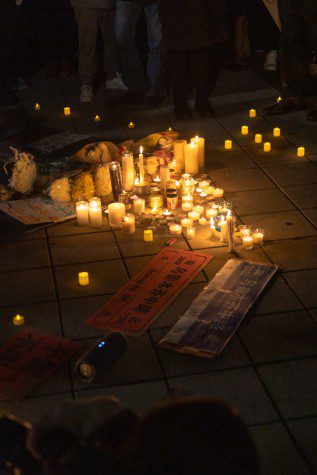
“People in China have been living under the tyranny of the CCP’s ‘zero-COVID’ policy for three years,” a flier distributed during the protest read. “Today, we gather to mourn the lives lost under COVID oppression, and demand the Chinese government to be held accountable!”
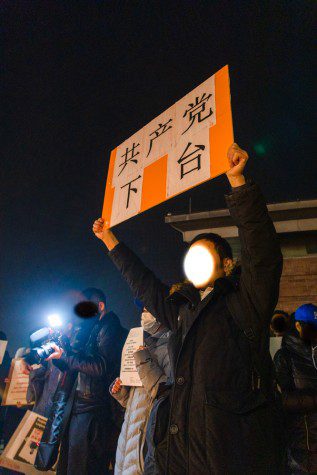
Organizers requested that attendees bring candles, posters and flowers. Many demonstrators carried signs showing their support for the movement, including blank sheets of paper and signs that read “Down with the CCP,” “I want to go home” and “No. I do not understand.” Participants sang “Do You Hear the People Sing?” from the musical “Les Miserables,” which was removed from all Chinese music streaming services after Hong Kong protesters popularized the song in 2019. They also sang along to “The Internationale.”
[Read more: At Washington Square, dissidents support historic protests across China]
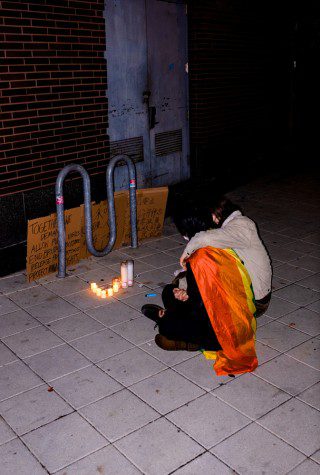
One of the protest’s organizers said the gathering also intended to provide a space for Uyghurs, the majority group in Xinjiang — an autonomous region where a fire killed 10 people this past week. At the protest, the names of the Ürümqi high-rise fire victims were read, and the Kökbayraq flag was waved in solidarity. The United States and other countries have previously accused China of committing genocide in the region, but China has denied all allegations of human rights violations.
“I see it, we see it, our Uyghur compatriots have seen it,” a speaker said. “Never forget, never give up.”
The scope of the protests goes beyond COVID-19 policies. Many activists voiced support for Hong Kong and Taiwan’s liberation. Others called for more domestic transparency and reduced media censorship. The overarching narrative from the state media typically frames political movements in China as the result of foreign influences.
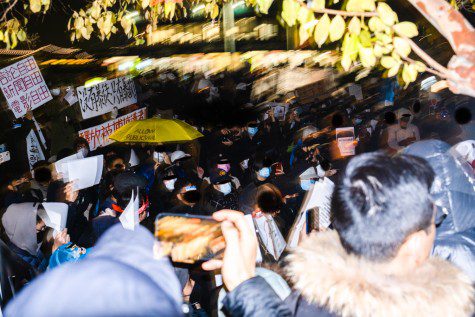
“Freedom of speech!” a sign read, “I am not foreign forces. I’m the people of China!”
Protesters also called for President Xi Jinping’s resignation and for the Chinese Communist Party to relinquish power. An NYU alum and U.S. citizen said their uncle-in-law was arrested and tortured by the Chinese Communist Party for months, and he was later convicted for a crime he did not commit. They said they attended the protest to support their mainland partner.
“People have been crying out to their government that they’re suffering and the government has refused to listen because they refuse to admit that it can do any wrong,” they said. “And even if this pandemic ends, a government that acts that way will continue to fail its people, and more people, sooner or later, are going to die.”
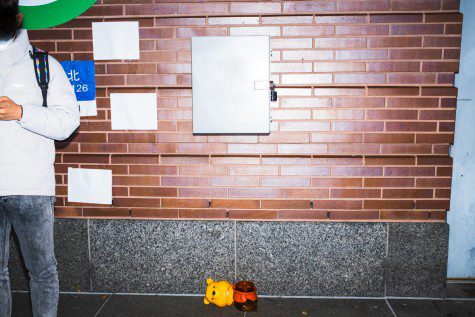
Winnie-the-Pooh, which has become a caricature for Xi in Chinese communication streams, was spotted on fliers and a balloon. One sign depicted the bear holding an A4 piece of paper, similar to many protesters in China and across the world. The cartoon character’s eyes appeared crossed out on one side of the balloon, with the other side reading, “Give me freedom or give me death.” A plastic Winnie-the-Pooh jello container laid beheaded on the floor near a miniature vigil.
Throughout the demonstration, attendees chanted “It is my duty,” a common phrase at zero-COVID policy protests that holds several meanings. The chant is similar to a man’s response when asked about his participation in the Tiananmen Square protests of 1989. While protests continue, Chinese media announced that former president Jiang Zemin, who rose to power as a result of the Tiananmen Square massacre, passed away on the morning of Wednesday, Nov. 30.
Some participants said they protested because they felt privileged to be able to do so being abroad, and others said they attended to call on China to become more democratic.
“I don’t know how Chinese [mainlanders] who now live abroad, overseas, can feel so indifferent about this,” one NYU student from Shanghai said. “Because, at the very least, we all have family there — back at home.”
Contact Mayee Yeh at [email protected].











































































































































































